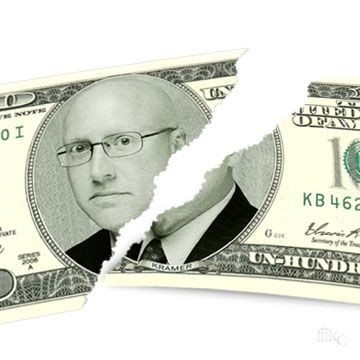The Lawyer's Lawyer
Fee Splitting
Q. I've always heard that referral fees are forbidden. But I know lawyers who routinely refer cases for a share of the profit, even if they're not licensed where the cases are pending. Isn't this unethical?
A. Not if you do it right.
Strictly speaking, "referral fees" remain illegal in all but a few states like California and Virginia. Since you can't give "anything of value" in return for a recommendation or referral, direct payments for either are forbidden in most jurisdictions.
But there are ethical ways to profit from cases that are largely, or even entirely, handled by others. Rescinding older rules that only let you share fees in proportion to the work you actually perform, the Rules of Professional Conduct adopted in most states will let you reap the financial rewards of cases for which you bear financial and ethical responsibility.
In most jurisdictions, lawyers from different firms may split fees if they assume "joint responsibility" for the case, if the client agrees to it in writing, and if the total fee remains reasonable. Many states also require that the agreement disclose the share that each lawyer will receive.
Unless you intend to participate in the litigation itself, there is no requirement that you be admitted as pro hac vice counsel. In fact, there's no requirement that you work on the case at all as long as you're willing to take responsibility for it.
At bottom, lawyers cannot profit from a case unless they have "skin in the game," either through their own service to the client or by bearing joint liability if something goes wrong. Unlike a lawyer who makes a referral and walks away, you're on the hook if your co-counsel falters. To share in fees, you must assume an ethical duty to ensure that the case is handled competently to protect the client's interests. If you're not willing to accept this burden, you're better off giving clients the names of some reputable attorneys and wishing them well.
If you properly verify the qualifications of your co-counsel, and actively monitor their efforts, you may effectively "broker" a case to a lawyer outside of your firm. This is true even if you're not licensed where the case is pending. Although most jurisdictions prohibit lawyers from splitting fees with non-lawyers, lawyers from different states may share fees if they follow the rules.
Where jurisdictions were once split on the issue of "fee splitting," this practice has been accepted across the globe. As "multi-national" practices continue to grow, virtually all jurisdictions that have addressed the issue have given their blessings to fee-sharing arrangements with foreign lawyers who have professional education, training and ethical standards comparable to those of their American counterparts.
